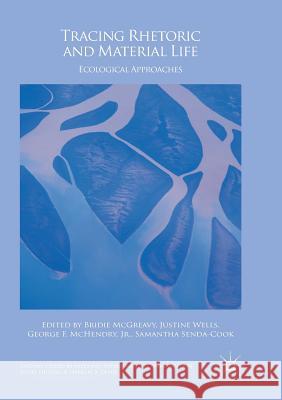Tracing Rhetoric and Material Life: Ecological Approaches » książka
topmenu
Tracing Rhetoric and Material Life: Ecological Approaches
ISBN-13: 9783319880877 / Angielski / Miękka / 2018 / 368 str.
Kategorie:
Kategorie BISAC:
Wydawca:
Palgrave MacMillan
Seria wydawnicza:
Język:
Angielski
ISBN-13:
9783319880877
Rok wydania:
2018
Wydanie:
Softcover Repri
Ilość stron:
368
Waga:
0.46 kg
Wymiary:
21.01 x 14.81 x 2.03
Oprawa:
Miękka
Wolumenów:
01
Dodatkowe informacje:
Wydanie ilustrowane











